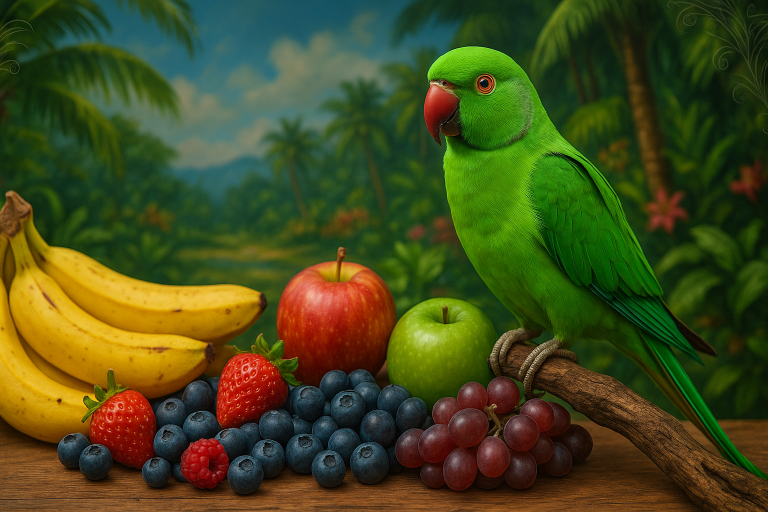Providing a balanced diet is essential for keeping your parrot happy, energetic, and long-lived. While seeds are a common staple, they shouldn’t be the only food in your bird’s diet. A variety of fresh fruits, vegetables, grains, and proteins will ensure your parrot gets all the necessary nutrients. Below are the top 10 healthy foods to include in your parrot’s meals.
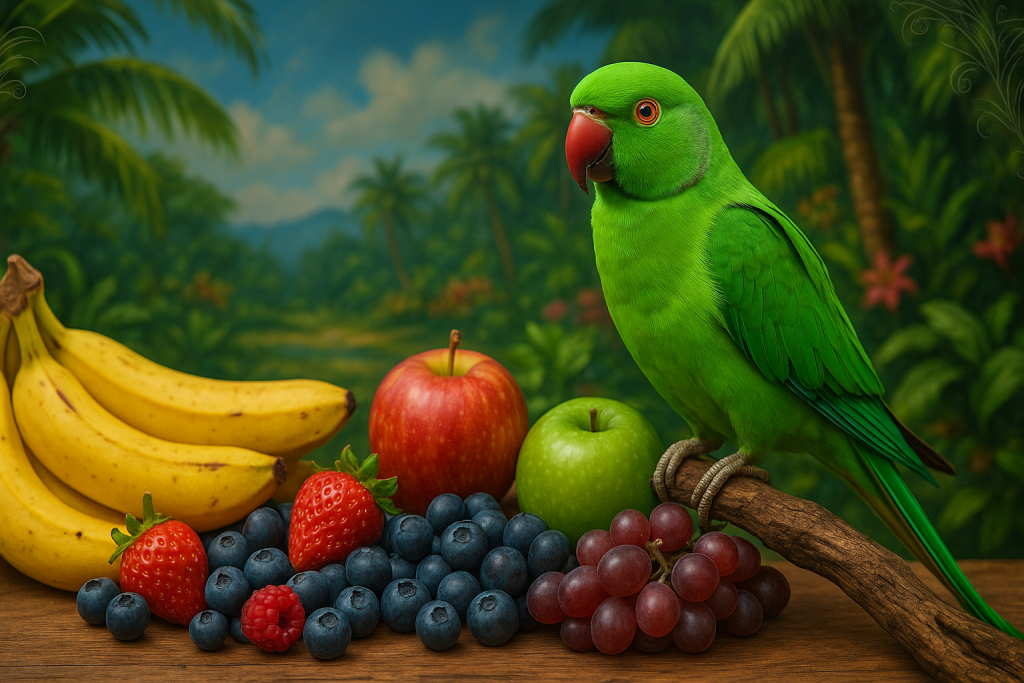
1. Fresh Vegetables
Vegetables should make up a large portion of your parrot’s diet. Leafy greens like kale, spinach, and Swiss chard are packed with vitamins A and K. Carrots, bell peppers, and broccoli provide antioxidants and fiber. Always wash vegetables thoroughly and serve them raw or lightly steamed to preserve nutrients.
2. Fruits (In Moderation)
Fruits are a great source of vitamins but should be given in moderation due to their natural sugars. Apples (without seeds), bananas, berries, and melons are excellent choices. Avoid avocado, which is toxic to parrots, and remove any fruit pits or seeds that may be harmful.
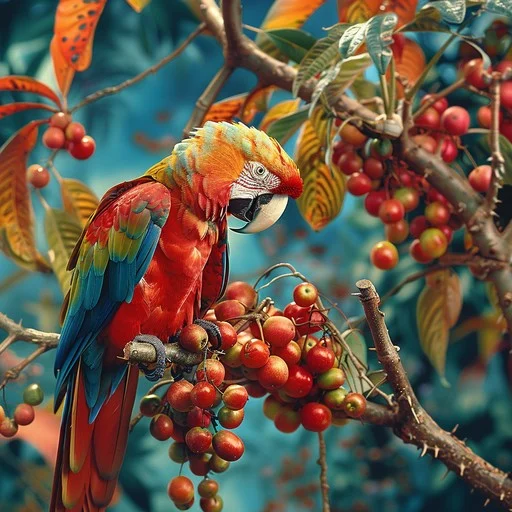
3. High-Quality Pellets
Pelleted diets are specially formulated to provide balanced nutrition. Look for organic, dye-free pellets with no artificial additives. While pellets shouldn’t be the only food, they help fill nutritional gaps in a seed-based diet.
4. Whole Grains
Cooked quinoa, brown rice, whole wheat pasta, and oatmeal are excellent sources of fiber and energy. These grains can be mixed with vegetables for a wholesome meal. Avoid processed grains like white bread or sugary cereals.
5. Nuts and Seeds (Sparingly)
Nuts like almonds, walnuts, and pecans provide healthy fats and protein, but they should be given in small amounts due to their high fat content. Sunflower and pumpkin seeds are popular but should be limited to prevent obesity.
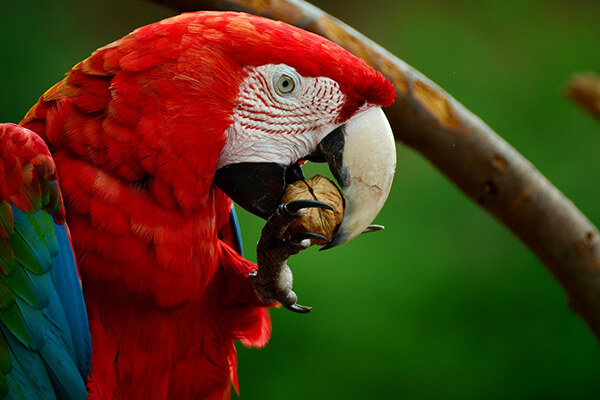
6. Legumes and Beans
Cooked lentils, chickpeas, and black beans are rich in protein and fiber. Always serve them fully cooked (never raw) and unseasoned. These can be mixed into veggie blends for extra nutrition.
7. Sprouted Seeds
Sprouted seeds are more nutritious than dry seeds, offering live enzymes and higher vitamin content. You can sprout mung beans, quinoa, or sunflower seeds at home for a fresh, healthy treat.
8. Herbs and Edible Flowers
Fresh herbs like basil, cilantro, and parsley add variety and antioxidants. Edible flowers such as hibiscus, dandelions, and marigolds are also safe and enjoyable for parrots.
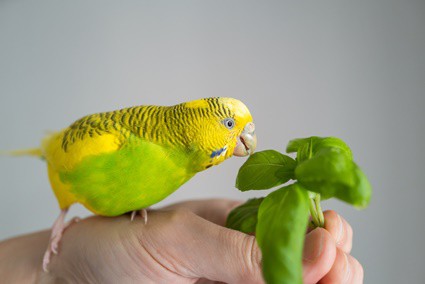
9. Cooked Eggs (Occasionally)
Eggs provide a great protein boost. Serve them hard-boiled or scrambled (without oil or seasoning). Eggshells can also be crushed for added calcium, but ensure they’re thoroughly cleaned first.
10. Clean, Fresh Water
Always provide fresh, filtered water daily. Parrots need hydration for digestion and overall health. Change the water at least twice a day to prevent bacterial growth.
Foods to Avoid
Never feed your parrot chocolate, caffeine, alcohol, salty snacks, or processed foods. Onions, garlic, and avocado are toxic to birds. Also, avoid sugary or artificially flavored treats.
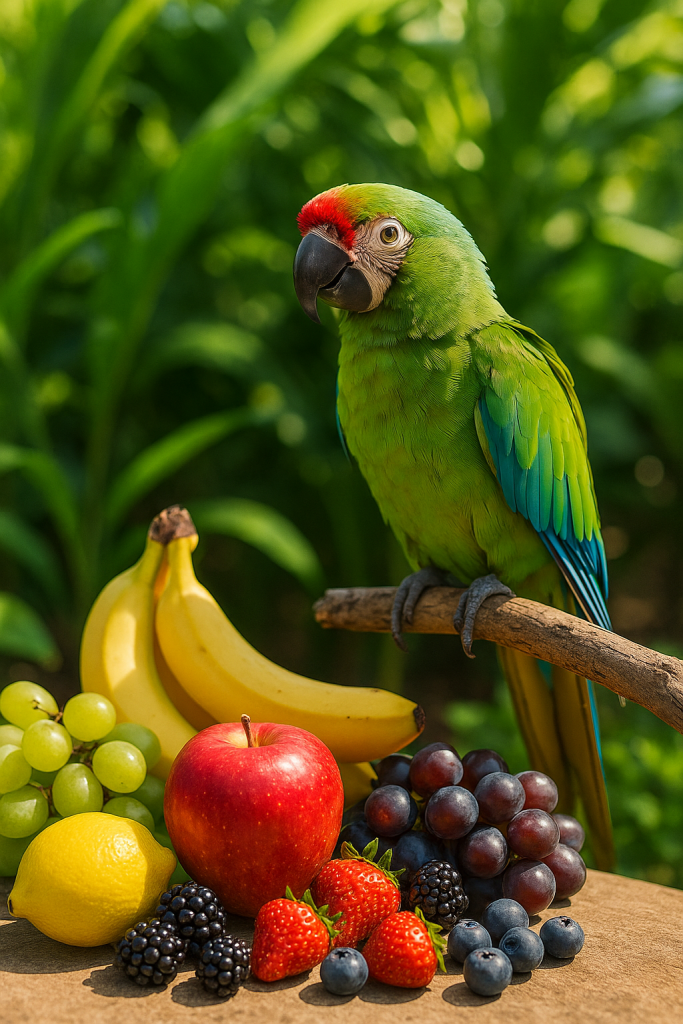
Final Tips for a Balanced Diet
Rotate different foods to keep meals interesting and nutritionally diverse. Observe your parrot’s preferences and adjust portions based on activity level. A well-fed parrot is a vibrant, active, and long-lived companion!
By incorporating these healthy foods into your parrot’s diet, you’ll support its immune system, feather health, and overall well-being. Happy feeding!

